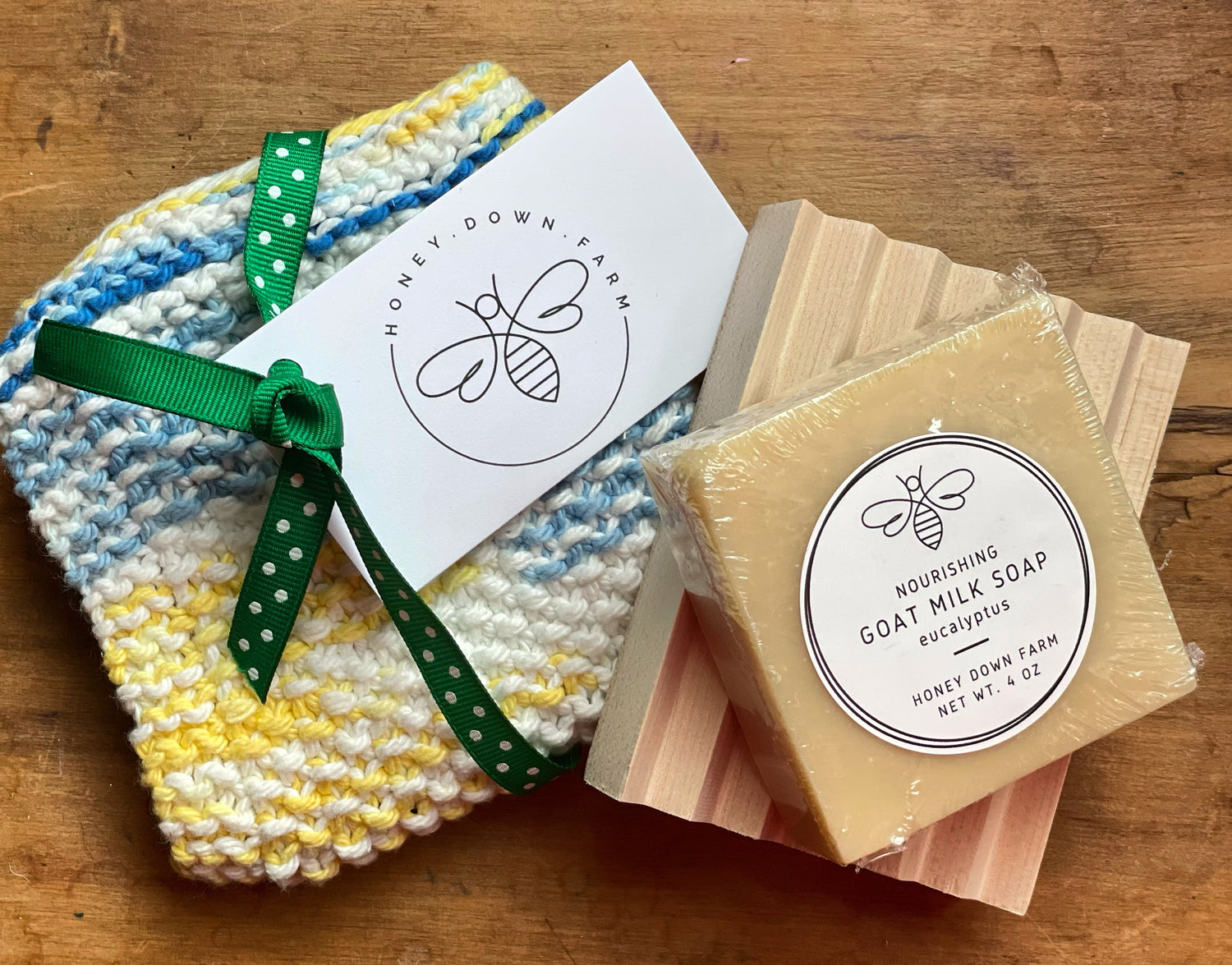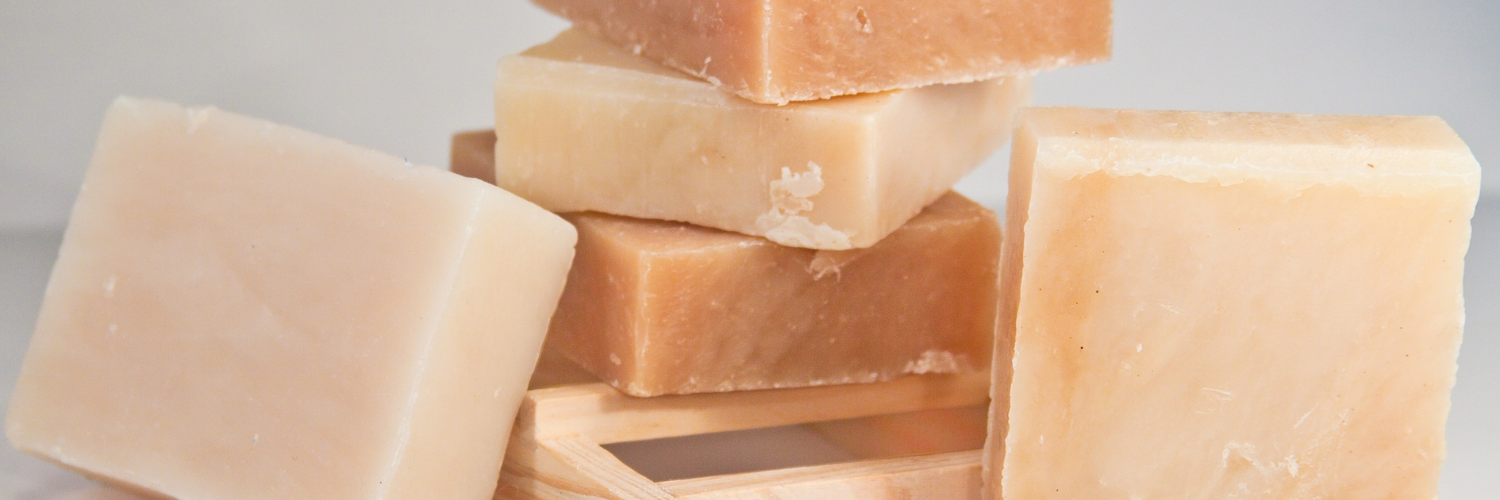Understanding Fragrance Oils and Essential Oils
Fragrance Oils
Fragrance oils are synthetic scents created using a mix of aroma chemicals and natural ingredients such as essential oils, extracts, and resins. They are designed to mimic or enhance the aromas found in nature or create entirely new scents. Fragrance oils offer a wide range of options for creating unique and captivating aromas for handmade natural skincare products.
Pros:
- More stable in skincare products
- Skin-safe and can be used in soap, lotion, bath bombs, and more
Cons:
- Synthetic
- Some can accelerate or discolor in skincare products
Essential Oils
Essential oils are natural scents extracted from herbs, flowers, and plants, most often through steam distillation, solvent extraction, or expression. They contain the essence of the plant's fragrance and can provide various benefits to the skin in addition to their pleasant aromas. Essential oils are popular choices for those who prefer natural and pure ingredients in their handmade natural skincare products.
Pros:
- Natural and 100% pure
- Choose from favorites like tea tree, lavender, peppermint
- Can create blends for more complexity
Cons:
- Fewer options
- Some can fade in skincare products, some can't be used in leave-on products, others can't be used with certain health conditions
Choosing Fragrances for Handmade Natural Skincare Products
Personal Preference
The choice between fragrance oils and essential oils largely boils down to personal preference. Some individuals prefer natural scents and may opt for essential oils, while others may appreciate the variety and complexity that fragrance oils can provide. Experimenting with both types of scents can help you determine your preference and create the perfect aroma for your handmade skincare products.
Desired Scent Complexity
Essential oils provide a more straightforward scent profile, while fragrance oils often contain multiple notes, resulting in a more complex aroma. If you prefer a more intricate scent, fragrance oils may be the better choice. However, essential oils can also be blended to create unique and complex scents, allowing for customization and creativity.
Stability in Skincare Products
Fragrance oils generally have better stability in skincare products compared to some essential oils, which can fade or change over time. If you want a fragrance that will last and maintain its scent in your handmade natural skincare products, consider opting for fragrance oils.
Safety and Health Considerations
Both fragrance oils and essential oils have safety considerations to keep in mind. Some essential oils may not be suitable for use in leave-on products or for individuals with specific health conditions. Fragrance oils may contain synthetic ingredients that some consumers may wish to avoid. Always read the descriptions and safety information for the fragrances you are considering and follow the recommended usage guidelines.
Top, Middle, and Base Notes in Fragrances
Fragrances are often described using the terms top, middle, and base notes, which refer to how the scent develops and changes over time.
- Top notes: These are the initial scents you smell upon application and evaporate quickly.
- Middle notes: These become more prominent as the top notes fade, forming the main body of the fragrance.
- Base notes: These scents emerge after the middle notes and provide a lasting aroma that lingers on the skin.
Understanding the different notes in a fragrance can help you create a well-rounded and appealing scent for your handmade natural skincare products.
Scent Families
Fragrances can be categorized into scent families based on their shared characteristics. The two primary categories are fresh scents and warm scents.
- Fresh scents: These include fresh notes (such as water, green leaves, citrus, and fruits) and floral notes (fresh flowers, aldehydes, powdery notes, orange blossom, and sweet spices).
- Warm scents: These encompass amber notes (amber, vanilla, incense, resins, and patchouli) and woody notes (mossy woods, dry woods, leather, and aromatic woods).
Understanding scent families can serve as a helpful guide when creating fragrance blends for your handmade natural skincare products.
Mixing Scents and Creating Fragrance Blends
When blending fragrances, consider the following guidelines:
- Woody scents tend to pair well with all other families and are often used as base notes.
- Florals and other fresh scents are commonly used as top notes and complement spicy and woody smells.
- Amber scents work well with spices and citrus smells.
- Green scents typically match well with citrus and earthy smells.
Experimenting with different scent combinations can help you create unique and captivating fragrance blends for your handmade natural skincare products.
Testing Fragrances
Before incorporating a new fragrance blend into your skincare products, it is crucial to test the scent using fragrance test strips or by diluting the fragrance in a carrier oil or alcohol. This will allow you to experience the full development of the fragrance, including the top, middle, and base notes. Testing several fragrances may require cleansing your nasal palate between each scent to ensure an accurate evaluation of each blend.
The Importance of Phthalate-Free Fragrances
Phthalates are a group of chemicals used in various products, including fragrance oils, to improve flexibility and longevity. However, due to concerns about potential health risks, many fragrance oils are now being reformulated to be phthalate-free. When choosing fragrances for your handmade natural skincare products, consider opting for phthalate-free options. Learn more about Phthalates in Cosmetics.
Safety and Usage Guidelines for Fragrances in Handmade Skincare Products
Both fragrance oils and essential oils should always be used according to the recommended guidelines, as some scents can be irritating or toxic if used inappropriately. Ensure that the fragrances you choose are skin-safe and follow the proper dilution ratios for your specific skincare product.
Adhering to an Essential Oil Philosophy
When using essential oils in your handmade natural skincare products, it is crucial to understand their properties, benefits, and potential risks. Educate yourself on the various essential oils available and research their uses, contraindications, and safety information to ensure that your products are both effective and safe for use.
Embracing Creativity and Experimentation in Fragrance Blending
Fragrance blending is an art that requires creativity and experimentation. By understanding the basics of fragrance oils, essential oils, scent families, and blending techniques, you can unlock a world of possibilities to create unique and captivating scents for your handmade natural skincare products. Practice and refine your skills, and soon you will be able to craft the perfect fragrance for any creation.
In conclusion, the choice between fragrance oils and essential oils in handmade natural skincare products depends on personal preference, desired scent complexity, stability, and safety considerations. Understanding the nuances of each type of fragrance and experimenting with different scent combinations will help you create unique and captivating aromas for your skincare creations. By mastering the art of fragrance blending, you can elevate your handmade skincare products to new heights of sensory delight.





